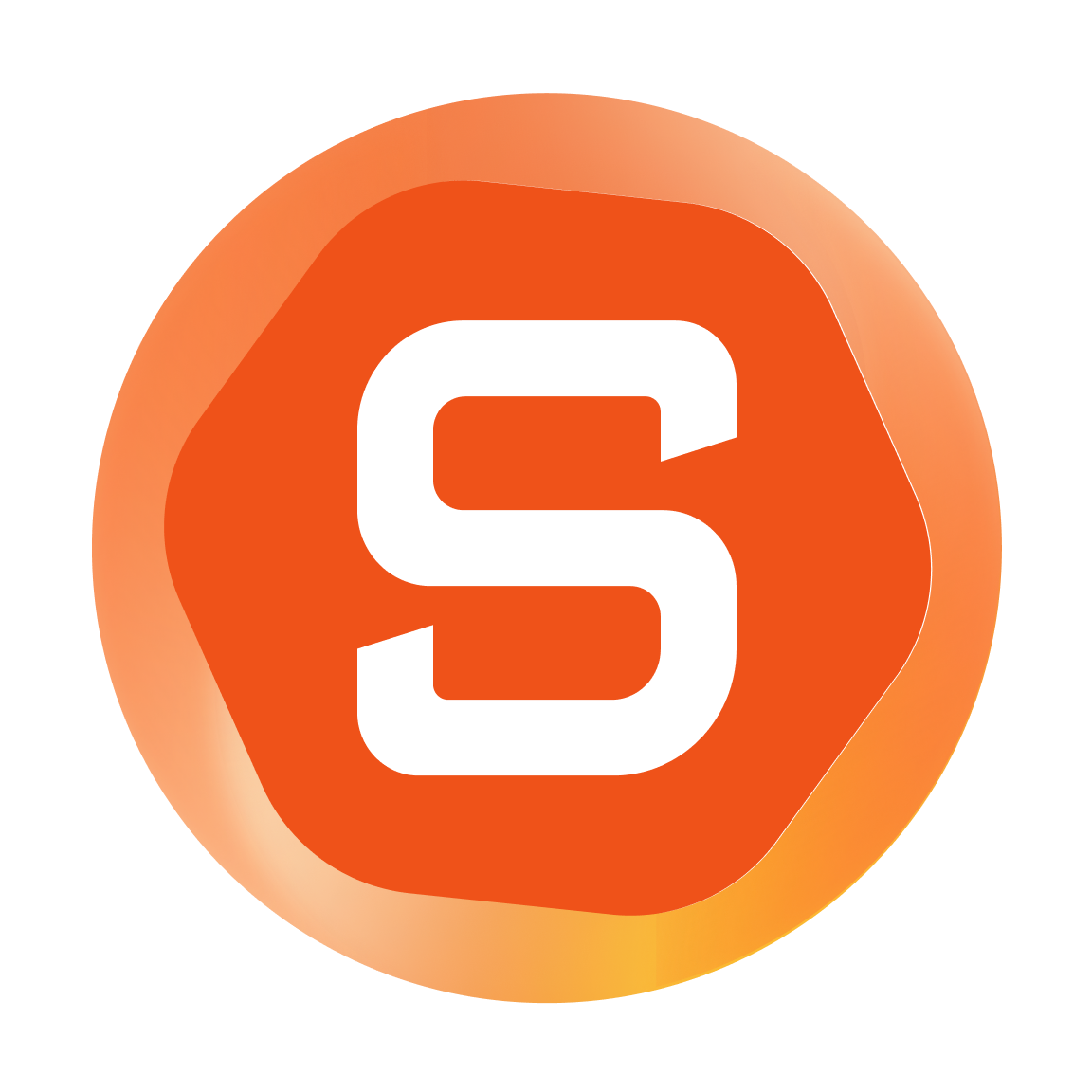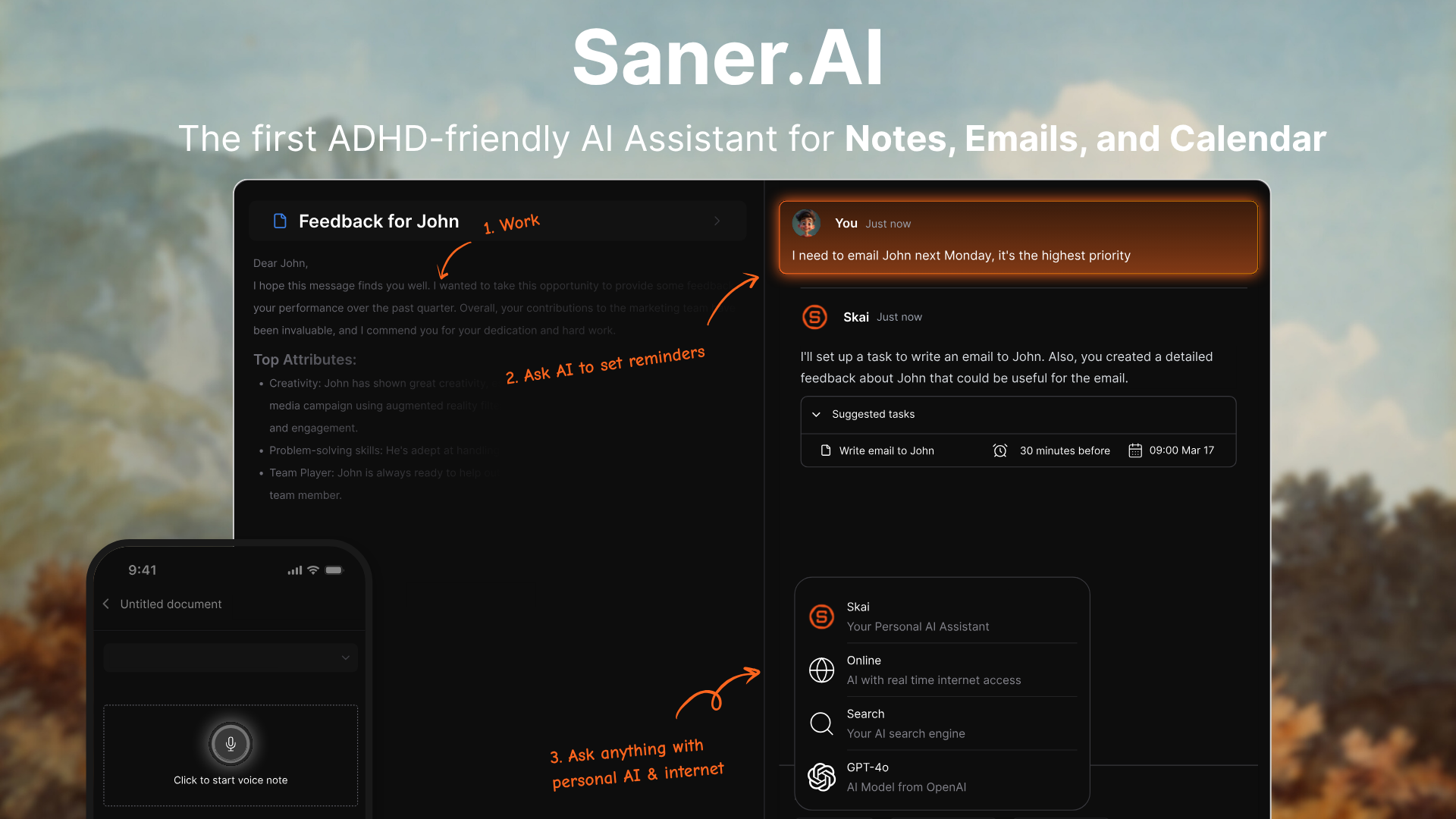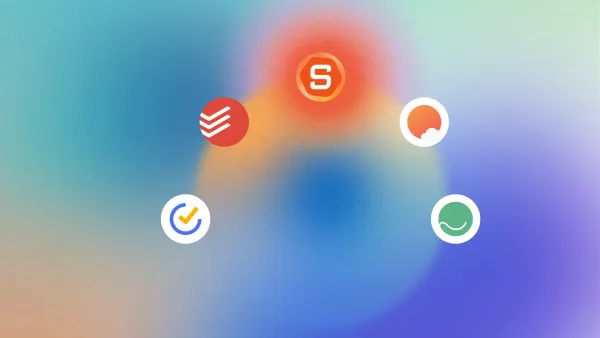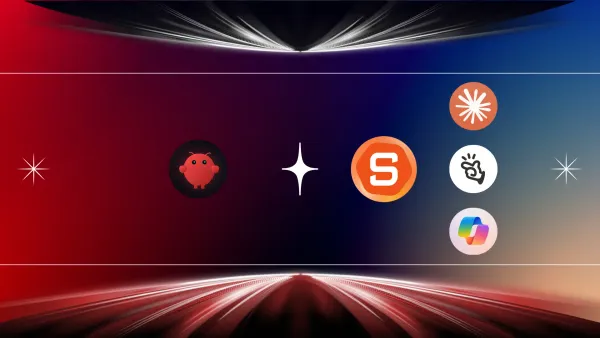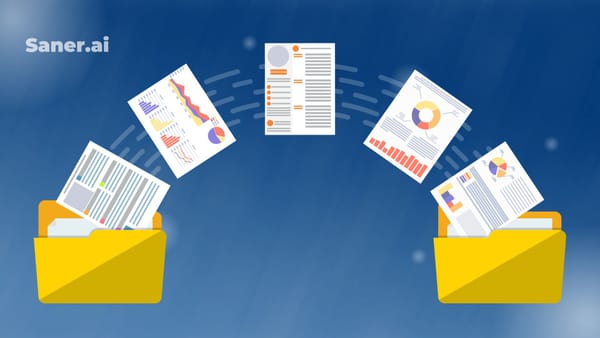AI Assistant for Business: We Reviewed The Best 8 in 2025
The Best AI Assistants for Business are: Saner.AI, ChatGPT, Gemini, Claude, Microsoft Copilot, Motion, Notion, and Reclaim.
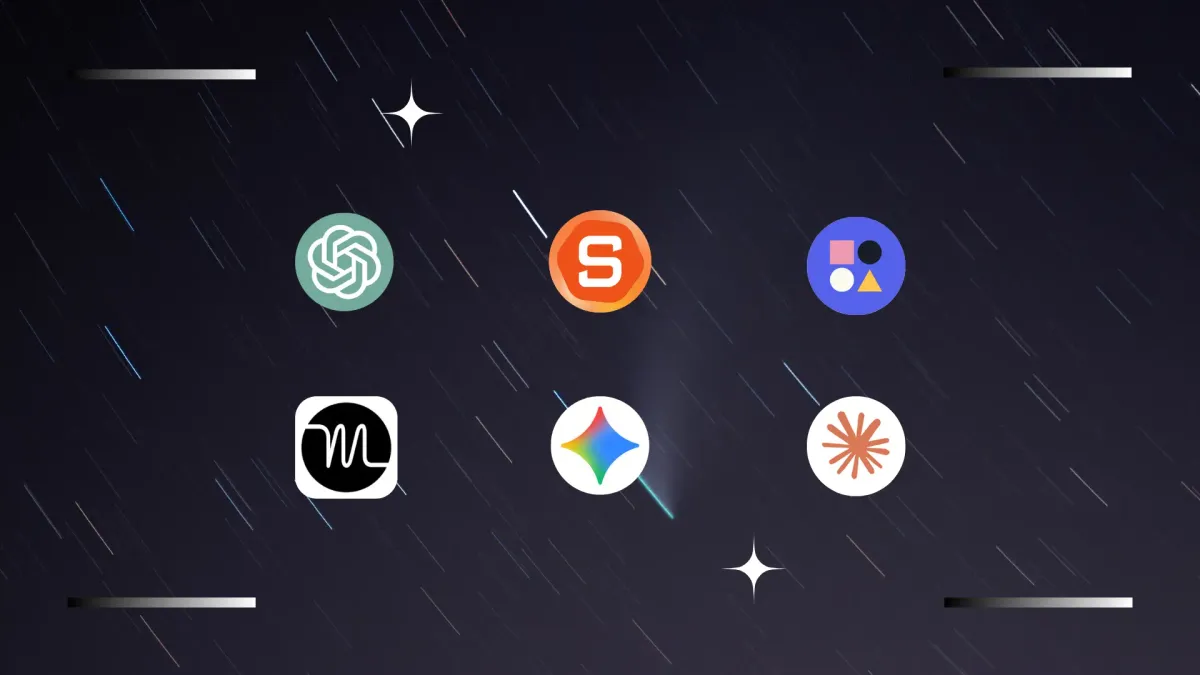
We tried the 8 Best AI Assistants for Business in 2025
Imagine this: You arrive at your office (or fire up your laptop at home), and your AI assistant has already triaged your inbox, summarized your latest project updates, flagged urgent tasks, and drafted responses you just need to review.
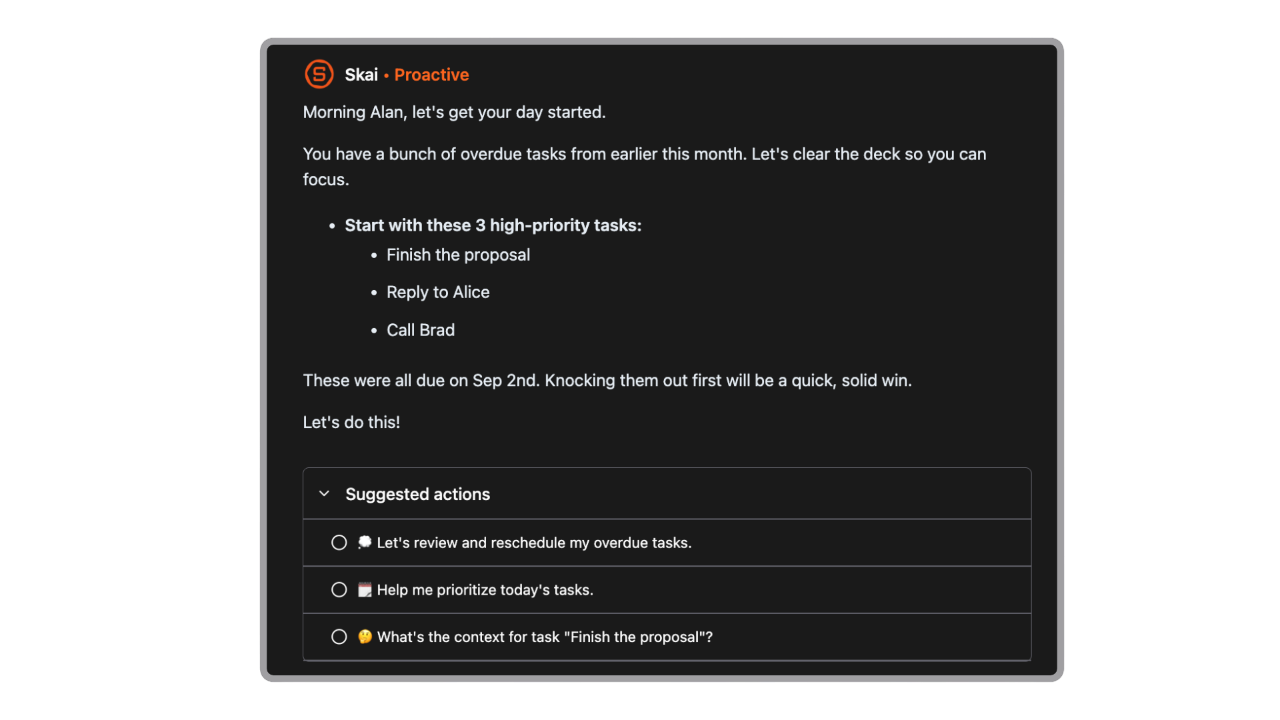
That scenario is no longer science fiction - it’s becoming the norm.
In 2025, AI assistants for business are rapidly shifting from optional tools to essential team members. Companies that adopt them are seeing major gains in efficiency, cost savings, decision speed, and error reduction.
Whether you’re a solo founder, a scaling startup, or an enterprise, the best AI assistant for business can help you automate repetitive tasks, level up team productivity, and focus on high-value work.
In this guide, we’ll explore:
- What an AI business assistant really is
- Why businesses are adopting them
- The top tools to watch in 2025
- How to choose and implement one
Let’s dive in!
1. What Is an AI Assistant for Business?
Modern AI Assistants vs. Traditional Automation
| Feature | Traditional Automation Tools | AI Business Assistant |
|---|---|---|
| Trigger style | Rule-based, explicit scripting | Dynamic, natural-language triggers |
| Adaptability | Static, fixed rules | Learns, adjusts, can ask clarifying questions |
| Use scope | One domain (e.g., email, CRM) | Multi-domain (email, calendar, docs, data) |
| Intelligence | Rigid logic, no “understanding” | Natural language processing + reasoning |
| Integration | Often manual or limited | Deep integration with APIs, pipelines, and memory |
Basically, a good AI assistant becomes an intelligent co-pilot in your business rather than a rigid tool.
2. Why Businesses Are Adopting AI Assistants
- Automating Admin Work
- Handling incoming email triage, drafting responses, and flagging priority messages
- Scheduling meetings across time zones, rescheduling conflicts
- Generating follow-up tasks automatically from conversations
- Assisting with Research & Strategy
- Scanning market trends, summarizing competitor analyses
- Project & Client Communication Management
- Sending status updates, reminders, and check-ins
- Managing internal task assignments or follow-ups
- Providing Summaries & Insights from Data
- Turning raw data, dashboards, or spreadsheets into actionable summaries
- Workflow Automation & Orchestration
- Connecting tools (CRM, marketing, analytics, email) and automating cross-tool flows
- Enabling multi-step agentic workflows (e.g. “if lead scores > X, send email, assign task, alert team”)
3. How I put each AI assistant to the test
- Used them across three real work scenarios - meetings, planning, and daily task management
- Evaluated how well they handled tasks, notes, and reminders together
- Checked their ability to understand context and suggest follow-ups intelligently
- Tested how quickly and accurately I could retrieve information later when I needed it
What Are The Best AI Assistants for Business in 2025?
The Best AI Assistants for Business are: Saner.AI, ChatGPT, Gemini, Claude, Microsoft Copilot, Motion, Notion, and Reclaim.
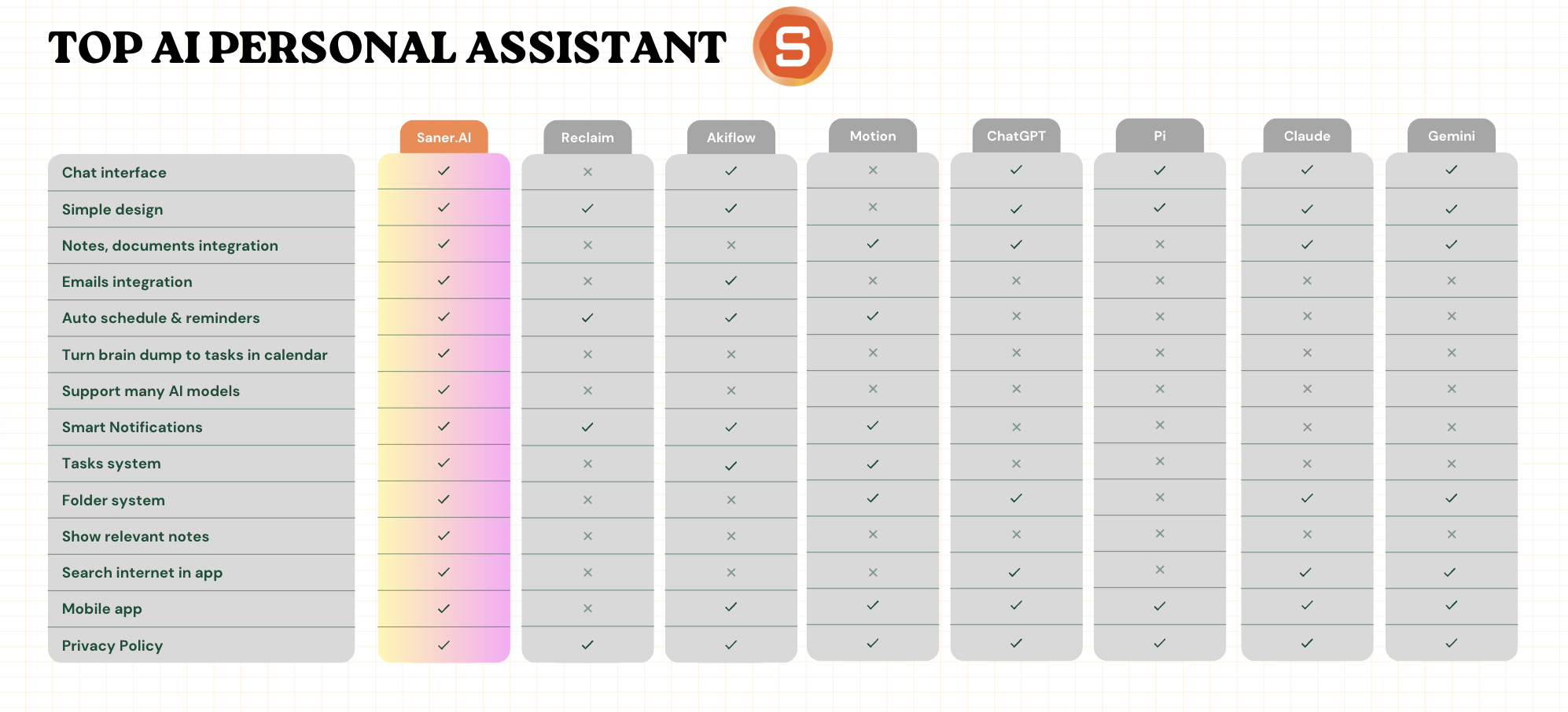
Comparison table: Best AI Assistants for Business
| 🤖 Tool | 🌟 Strength / Focus | ⚙️ Key Features & Differentiators | 🔗 Integration & Ecosystem Fit | 💼 Best For / Ideal Use Case |
|---|---|---|---|---|
| Saner.AI | Unified AI workspace & personal assistant | Day-plan view, auto-linking emails, notes, tasks; proactive suggestions; multilingual and mobile support | Integrates with Gmail, Calendar, Slack, and other productivity tools | Knowledge workers who want a single AI hub for notes, tasks, and scheduling |
| ChatGPT | General-purpose conversational AI | Natural language mastery, memory context, plugin ecosystem, custom GPTs, API integrations | Ecosystem-neutral; works with most business stacks via API or plugins | Teams wanting a flexible, extendable AI engine for research, drafting, and automation |
| Gemini (Google) | AI built into Google Workspace | Multimodal (text + image + voice), smart summaries of Gmail, Docs, and Sheets | Seamlessly embedded in Google ecosystem | Businesses using Google Workspace that want AI built into daily workflows |
| Claude (Anthropic) | Safety-first, long-context reasoning | Constitutional AI design, large context window, context-aware summaries | Connects via API, integrates with enterprise tools | Organizations in regulated industries that prioritize trustworthy and compliant AI |
| Microsoft Copilot | Deeply embedded in Microsoft 365 | Drafts, summarizes, and analyzes content in Word, Excel, and Teams | Works natively with Outlook, Excel, Teams, and SharePoint | Mid-to-large enterprises already using Microsoft 365 looking for built-in AI productivity |
| Motion | AI-powered scheduling & project automation | Dynamic task scheduling, conflict detection, automatic prioritization | Syncs with Google & Outlook Calendar; project integrations | Teams who want AI to manage and optimize their day automatically |
| Notion AI | AI-enhanced workspace & wiki | Instant writing, summarization, brainstorming, task suggestions | Native to Notion; connects with tools via APIs or Zapier | Teams using Notion for docs, projects, or internal knowledge bases |
| Reclaim.ai | Smart calendar & time protection | Auto-blocks focus time, reschedules meetings, syncs tasks across tools | Works with Google Calendar, Asana, ClickUp, Todoist, and more | Knowledge workers and teams who want to protect focus time without replacing their setup |
1. Saner.AI
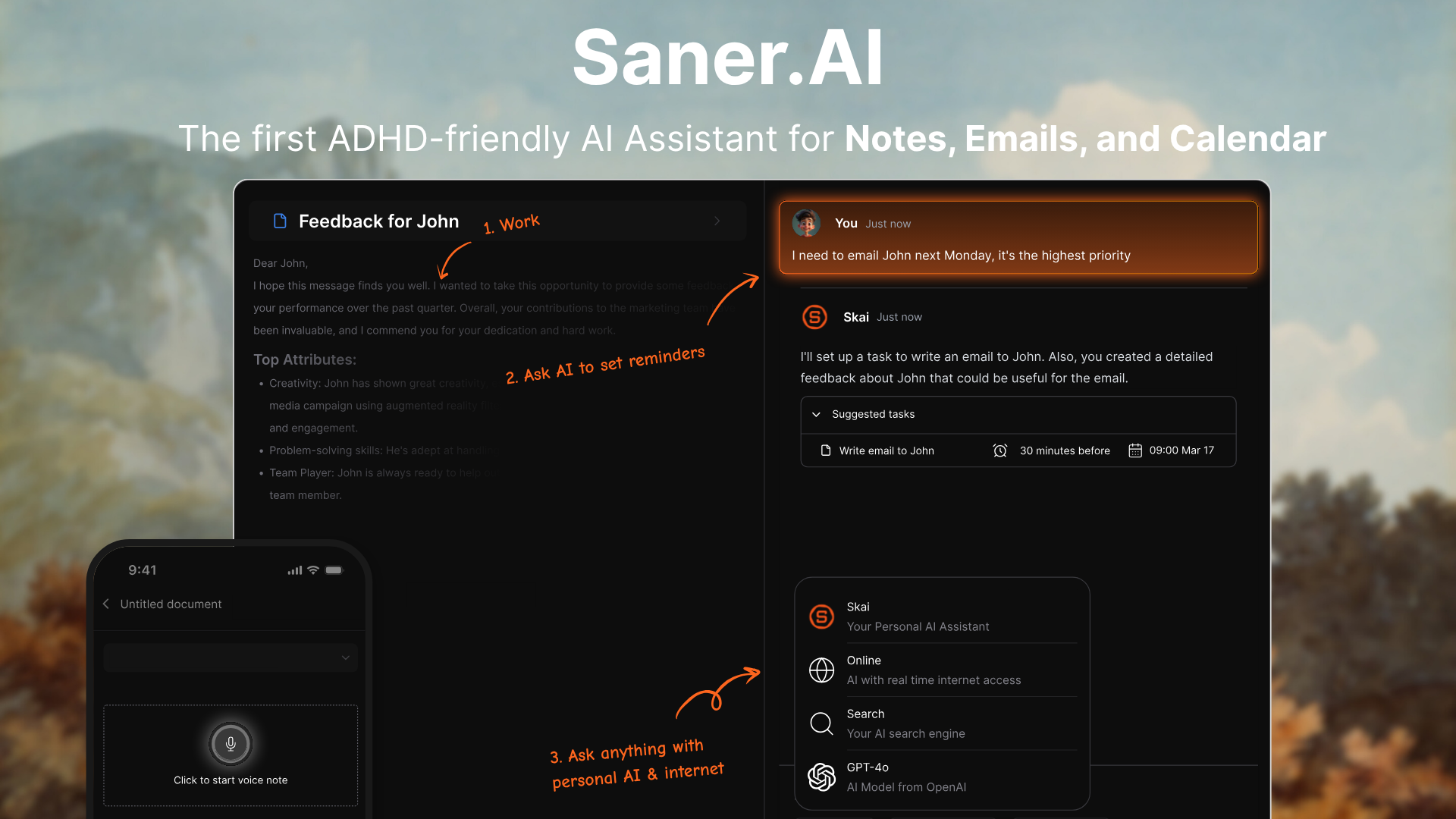
Saner.AI is an intelligent AI assistant that helps you manage everything from notes and tasks to emails and calendars in one place. It’s designed for busy professionals and small teams who want to reduce context switching, capture ideas faster, and stay on top of priorities - without juggling multiple apps.
Features
- Your day, planned for you
Every morning, Saner automatically looks at your emails, todos, and notes - then gives you an optimal plan
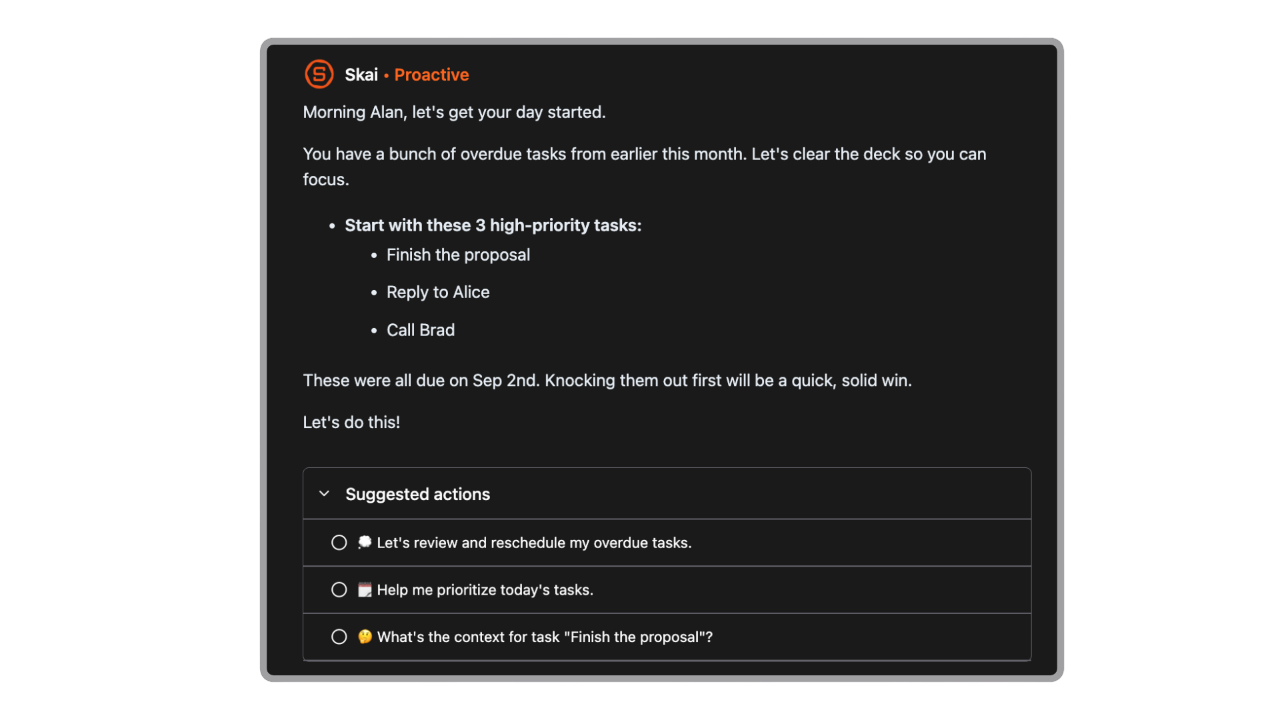
- Task extraction: The AI automatically detects action items from your notes or emails and helps prioritize them
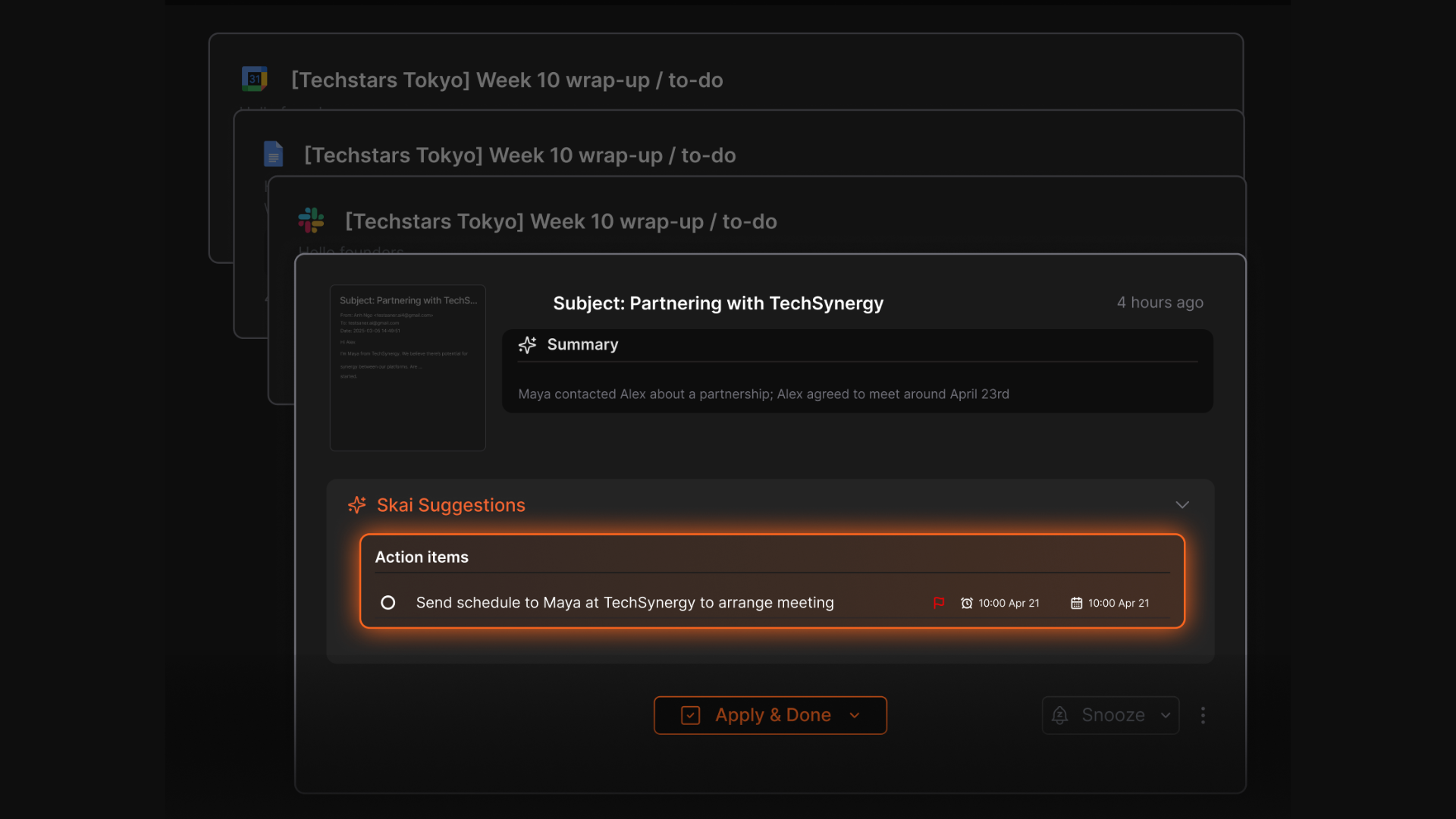
- Contextual search: Find what you need instantly - even across disconnected projects or topics
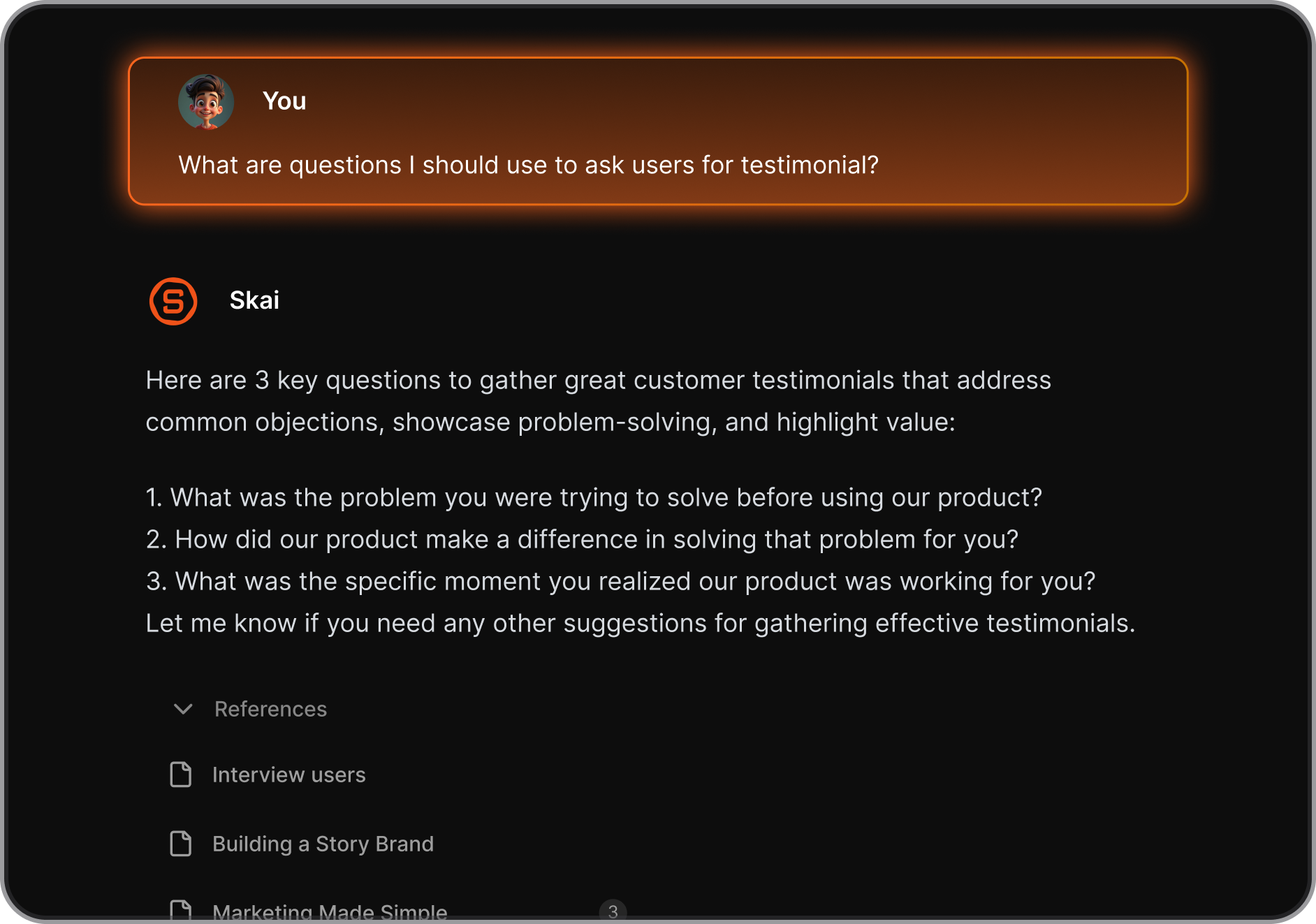
- Get help with tasks
Not sure how to start something? The AI can break it down, give suggestions, and remind you later.
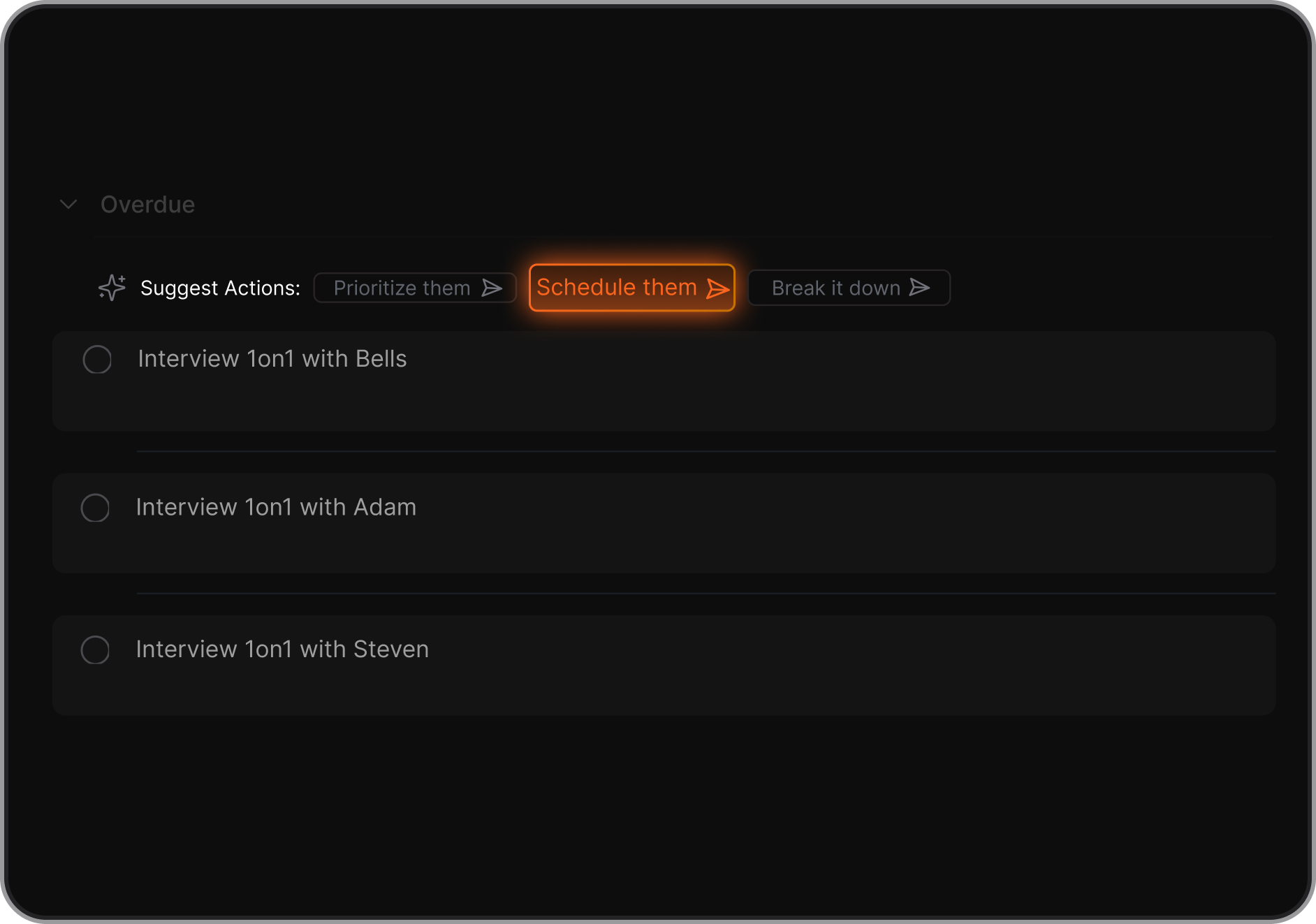
- Unified workspace: Combine notes, to-dos, and calendar in one place so nothing gets lost between tools
- Mobile and desktop apps: Access your knowledge base and tasks anywhere, anytime
Pros
- The integrated task system turns messy thoughts into actionable next steps without manual copy-paste
- The AI’s ability to recall related notes or context feels like having a second brain at work
- ✅ It extracts tasks from emails automatically for me
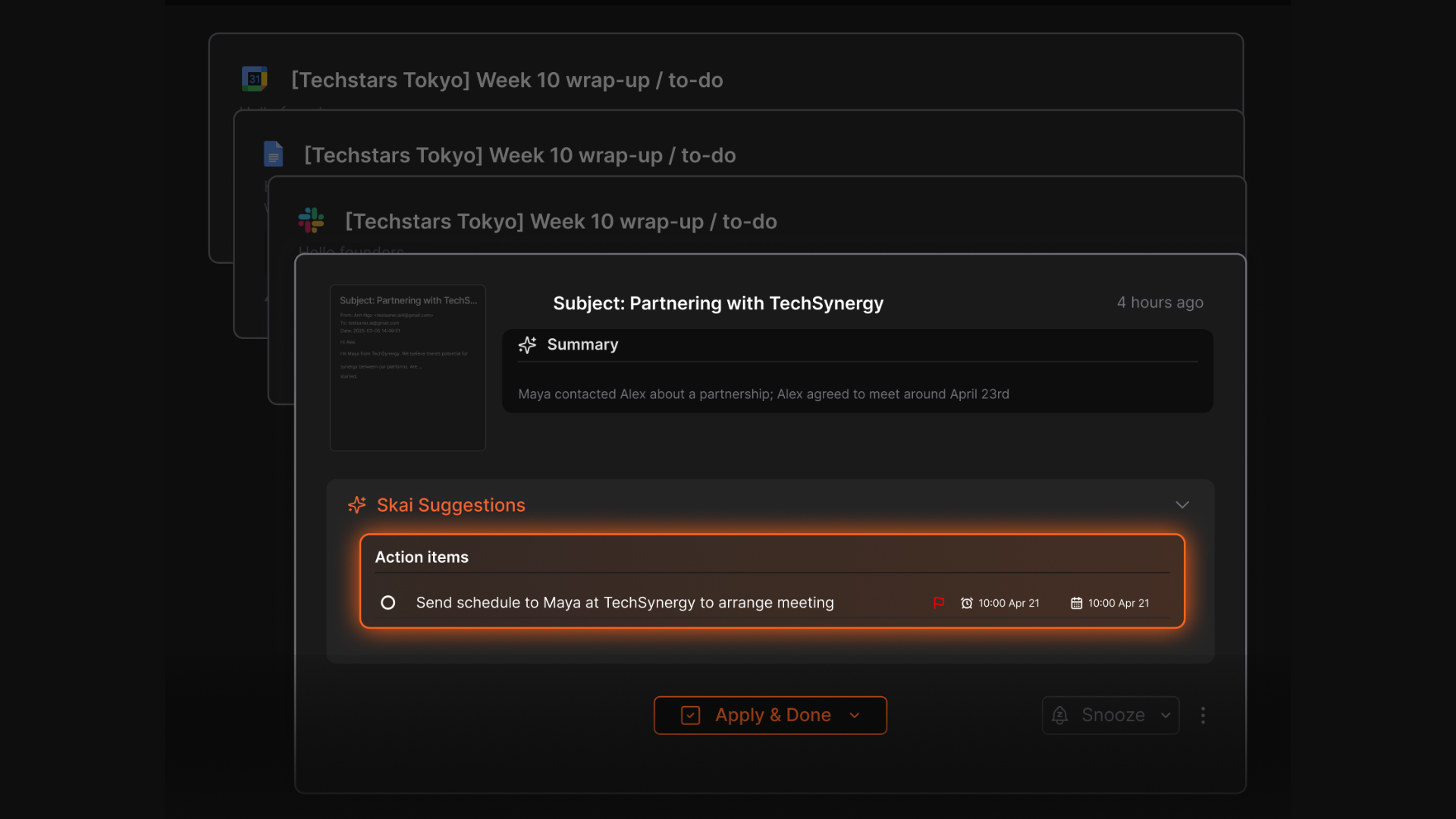
- ✅ Tailored features for individuals with ADHD
- ✅ Free plan available with no credit card required.
Cons
- ❌ Requires internet access for full functionality.
Saner.AI Reviews

Pricing
- Free
- Starter: Monthly at $8/month, Annually at $6/month (with early user discount)
- Standard: Monthly at $16/month, Annually at $12/month (with early user discount)
Who is it suitable for?
- Business owners, entrepreneurs, and solo professionals managing multiple responsibilities
- Knowledge workers, consultants, and researchers dealing with a lot of information daily
- ADHD or easily distracted individuals who need structure and clarity in their workflow
- Small teams that want to stay aligned without relying on multiple disconnected tools
How to start using it?
- Go to saner.ai and create a free account
- Import your notes, emails, and calendar to connect your existing workflow
- Start chatting with the AI assistant (Skai) to plan your day, organize tasks, or recall information
Stay of top of work with an AI Assistant for Business
2. Reclaim

Reclaim.ai is an AI assistant that helps you take control of your calendar. It works behind the scenes to automatically block time for tasks, deep work, habits, and breaks - without you constantly rearranging your schedule.
Key features
- Smart Time Blocking: Automatically protects focus time for deep work, tasks, and personal routines
- Smart Meetings: Finds the best meeting times for everyone involved and updates automatically when plans change
- Habit Scheduling: Creates recurring routines like workouts, planning sessions, or learning blocks that adapt to your day
Pros:
- It automatically balances meetings and work blocks so you don’t have to manage every detail
- The habit feature is flexible - your routines move around your changing schedule without disappearing
- The analytics view helps you see where your time really goes each week

Cons:
- There’s still no full mobile app, which makes it harder to manage on the go
- Outlook users may not get the same smooth experience as Google Calendar users
- It’s not designed for complex project management
- ❌ Doesn't have a chatbot interface
Pricing:
- Free Lite plan available.
- Starter plan at $10/user/month.
- Business plan at $15/user/month.
- Enterprise plans starting at $18/user/month.
Suitable for:
- Teams that rely on Google Calendar or Outlook and want AI to manage time intelligently
How to start:
- Go to reclaim.ai and create a free account
- Connect your Google or Outlook calendar
Reclaim.AI Reviews (source)

3. Microsoft Copilot

Microsoft Copilot is an AI assistant built right into Microsoft 365 apps like Word, Excel, Outlook, Teams, and PowerPoint. It combines large language models with your organization’s data to help you write, analyze, summarize, and automate work without leaving your usual tools.
Key features
- Contextual Chat: Understands your company’s documents, emails, and chats to provide grounded, personalized responses
- Deep Integration: Works directly inside Word, Excel, PowerPoint, Outlook, and Teams for seamless task execution
- Teams Collaboration: Summarizes meetings, creates follow-up actions, and drafts reports automatically
- Copilot Studio: Lets you build and customize internal AI agents for your business processes
What I liked
- The AI responses are grounded in your organization’s real data, not random web content
- Copilot Studio allows businesses to create task-specific AI agents with custom workflows
What I disliked
- The licensing model can be complex, with different pricing tiers for add-ons and roles
- Some features require higher-tier plans or technical setup to fully leverage
- It occasionally misinterprets nuanced data or formatting in Excel
- Works best within Microsoft’s ecosystem - not ideal if your team uses Google Workspace
Pricing
- Microsoft 365 Copilot add-on: around $30 per user/month
- Role-based Copilot agents (Sales, Service, etc.): from $50 per user/month
- Microsoft 365 Premium for individuals: around $19.99 per month
Suitable for
- Businesses already using Microsoft 365 for daily work and collaboration
How to start
- Make sure your Microsoft 365 subscription supports Copilot
- Add the Copilot license or upgrade your existing plan
Copilot reviews (source)

4. Motion
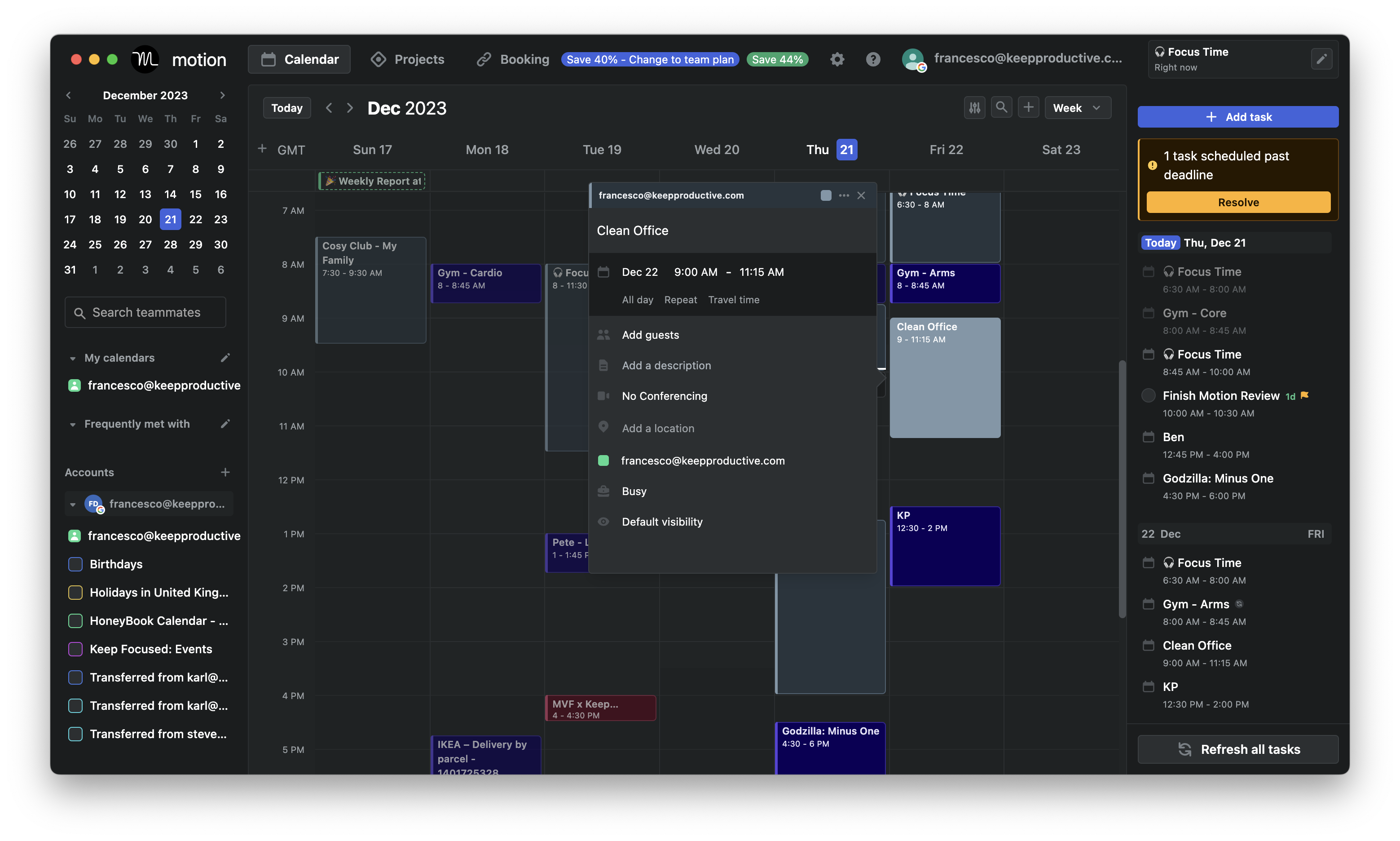
Motion is an AI assistant that helps you plan, schedule, and manage your entire workday automatically. It combines project management, calendar scheduling, and AI automation into one platform
Features
- AI Scheduling: Automatically plans your tasks around meetings, deadlines, and priorities so you never overbook yourself
- Project & Task Management: Create projects, assign tasks, and track progress with Kanban, list, or timeline views
- Meeting Booking: Share booking links that automatically respect your availability and buffer time
- Multi-calendar Sync: Connect Google, Outlook, and personal calendars to avoid scheduling conflicts
Pros:
- Visual project tools like Gantt and Kanban make team collaboration easier
- Multi-calendar sync helps keep work and personal life aligned
- ✅ Helps prevent overbooking and burnout
Cons:
- ❌ No permanent free plan - only a 7-day trial
- The pricing can be high for individuals or small startups
- It takes some time to learn how to use all its features efficiently
- Advanced automations are locked behind higher-tier plans

- ❌ Requires clear task input to fully benefit from automation
- ❌ Doesn't have a chatbot interface
Pricing:
- The Individual Plan is $34 per user per month (billed monthly) - quite pricey compared to other apps
- Team Plan: $20 per user per month (billed monthly)
Suitable For:
- Teams managing projects with tight deadlines and multiple stakeholders
- Companies exploring automation and AI-driven productivity tools
How to Start:
- Sign up for a free 7-day trial on Motion’s website
- Connect your work and personal calendars
Motion reviews (source)

5. ChatGPT

ChatGPT is a powerful AI assistant designed to help businesses with writing, research, data analysis, meeting summaries, and team collaboration - all through natural conversation.
Features
- Advanced reasoning with GPT-5: Generates high-quality, contextual responses across business, creative, and technical domains
- Deep Research mode: Conducts autonomous web searches to produce detailed, cited reports
- Integrations and connectors: Syncs with Gmail, Outlook, Google Drive, Dropbox, Slack, Notion, and databases to pull relevant information
Pros:
- Deep Research allows it to go beyond surface answers and deliver thorough insights
- The shared workspace makes team collaboration and knowledge sharing effortless
- ✅ Secure and enterprise-ready
- ✅ Always available across devices
Cons:
- ❌ No workspace to work on notes, tasks, calendar...
- ❌ Memory is still in beta for some users
- ❌ Needs internet to function
Pricing:
- Free basic version;
- ChatGPT Plus: $20/month for individuals with access to advanced models
- ChatGPT Team: around $30 per user/month
Suitable For:
- Businesses that want to scale AI use across teams instead of individual accounts
- Marketing, sales, research, and operations teams needing a creative and analytical partner
How to Start:
- Sign up for ChatGPT Team or Enterprise depending on your business needs
ChatGPT Review (source)

6. Claude

Claude is an AI assistant developed by Anthropic that focuses on being helpful, reliable, and safe. It’s designed to handle complex reasoning, long documents, and creative tasks while maintaining accuracy and context over extended conversations.
Features
- Long-context understanding: Processes and remembers very large documents, transcripts, and reports
- File and document creation: Generates spreadsheets, slide decks, and Word files directly from prompts
- Multi-model system: Choose between Opus (deep reasoning), Sonnet (balanced performance), or Haiku (fast and lightweight)
- Team collaboration: Share projects, prompts, and conversation history within your organization
Pros:
- Exceptionally strong at reading and summarizing long documents without losing context
- The new ability to create PowerPoint, Excel, and PDF files makes it more practical for business tasks
- ✅ Learns your style over time
- ✅ Works across tools you already use.
Cons:
- It can occasionally over-clarify or hedge answers, making responses longer than necessary
- Team setup and management can be complex for small businesses
Pricing:
- Free plan: Basic access with limited usage and standard models
- Pro plan: Around $20 per month for individuals with priority access and advanced models
- Team plan: Around $30 per user/month (or less annually) with collaboration tools and higher limits
Suitable For:
- Content creators, researchers, and analysts who work with large or complex text
- Businesses that prioritize accuracy, reliability, and ethical AI use
How to Start:
- Create a free account on Claude’s website to explore the base model
- Upload documents or test it with large prompts to experience its context handling
Claude review (source)

7. Gemini

Gemini is Google’s AI assistant built to work across Gmail, Docs, Sheets, Slides, and Meet. It’s designed to understand text, images, and even video, helping you write, analyze, code, and collaborate more effectively.
It’s ideal for businesses and professionals who already use Google Workspace
Features
- Multimodal reasoning: Understands and generates text, images, audio, and video inputs
- Deep Workspace integration: Works inside Gmail, Docs, Sheets, and Slides to draft, summarize, and analyze content
- Code Assist: Helps developers write, debug, and optimize code directly in Google Cloud and IDEs
- Grounded search: Combines live web data with your prompts for up-to-date, factual answers
Pros:
- Multimodal ability lets you mix visuals, documents, and data in one conversation
- Strong performance for structured data tasks like spreadsheet formulas and summaries
- ✅ Strong security and privacy standards
Cons:
- Some advanced features, like Deep Think and image generation, are limited to higher tiers
- ❌ Some features are only available in the Google ecosystem
Pricing:
- Gemini Advanced (Google One AI Premium): around $19.99 per month for individuals
- Gemini for Workspace Business: around $20 per user/month
- Gemini for Workspace Enterprise: around $30 per user/month
Who it’s suitable for:
- Companies and teams already using Google Workspace
How to Start:
- Enable Gemini in your Google Workspace or sign up for a Gemini Advanced plan
- Connect your Google account and start using Gemini in Gmail, Docs, or Sheets
Google Gemini review (source)

8. Notion
Notion AI is an AI assistant built directly into Notion, designed to help you write faster, summarize information, brainstorm ideas, and manage projects more efficiently. It brings AI-powered organization and creativity into your existing workspace, combining notes, tasks, documents, and databases in one place.
Key features
- Writing and editing assistant: Helps you draft, rewrite, summarize, and improve clarity or tone in any Notion page
- Autofill and summarization: Generates summaries of long notes, meeting minutes, or research pages automatically
- Task and project automation: Suggests next steps, extracts action items, and organizes them into databases
- Team-ready: Great for individuals and scalable for teams with collaborative docs and workspaces.
What I liked
- The writing quality is strong, especially for summarizing notes or rewriting text to sound more polished
- Great for content creation
- Everything lives in one place - notes, tasks, bookmarks, documents, and even AI summaries.

What I disliked
- The setup can be overwhelming. You need to commit time to make it work well.
- The response speed can vary with large or complex workspaces
- Limited task support compared to full-fledged AI task managers like Motion or Saner.ai
- Requires a paid plan to unlock most advanced AI features
Pricing
- Free plan: Basic Notion functionality, no AI features
- Plus plan: Around $10 per user/month
- Business plan: Around $18 per user/month
- Notion AI add-on: $8 per user/month on top of any paid plan
Suitable for
- Professionals and teams already using Notion for notes, projects, or documentation
- Startups and small businesses looking for an all-in-one workspace with built-in AI
How to start
- Log in or create a Notion account and open your workspace
- Enable Notion AI in settings and choose your plan or add-on
Notion reviews (source)

🧩 Conclusion: The New Reality of Business With AI Assistants
The shift toward AI assistants isn’t just about automating tasks - it’s about redefining how businesses operate.
What once took hours of coordination, manual follow-ups, and endless context switching can now be handled in minutes by tools that understand language, context, and intent.
Whether you’re a solo founder juggling emails and meetings, a growing team trying to stay aligned, or an enterprise rethinking productivity at scale, AI assistants like Saner.AI, Gemini, or Microsoft Copilot can help you reclaim time, reduce burnout, and focus on what truly moves the business forward.
Because in 2025 and beyond, the question isn’t “Should we use AI in our business?” - it’s “How fast can we adapt before the next wave passes us by?”
Stay on top of your business with the top AI assistant
FAQ: Best AI Assistants for Business
1. What is an AI Assistant for Business?
An AI assistant for business is a digital tool that helps you automate daily work - emails, scheduling, note-taking, task management, and even decision-making.
Instead of switching between five different apps, you simply chat with your assistant.
For example, you can say:
- “Summarize yesterday’s meeting.”
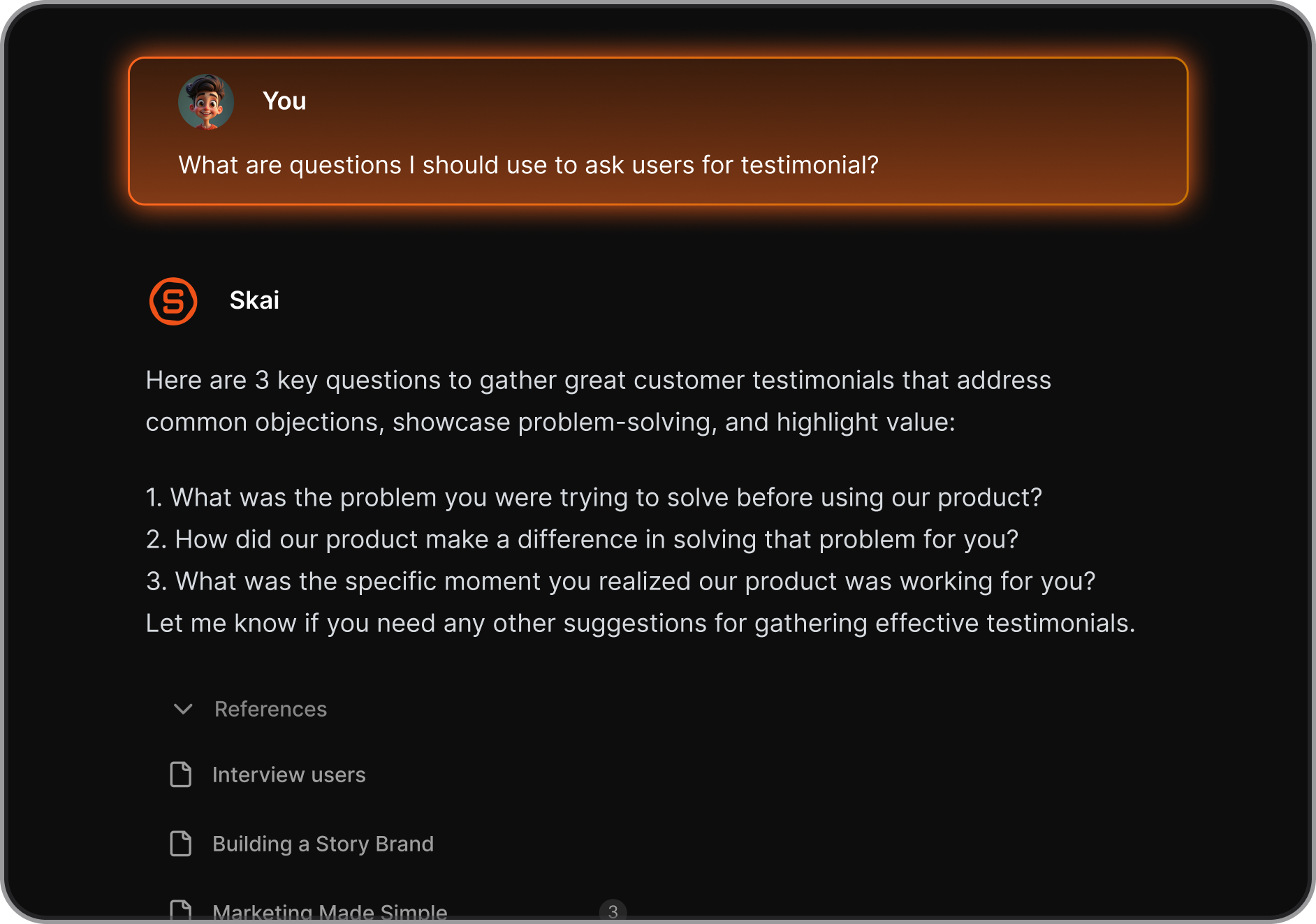
- “Add a follow-up task from this email.”
- “Show me what’s overdue this week.”
Top AI assistants for business include Saner.AI, ChatGPT, Gemini, Claude, Microsoft Copilot, Motion, Notion, and Reclaim. Each focuses on different productivity needs - from writing help to full business workflow automation.
2. What can AI assistants for business actually do?
Modern AI assistants are much more than chatbots. They act like proactive coworkers who help you move faster.
Common capabilities include:
- 🧠 Turning ideas or messages into clear tasks
- 🔍 Searching your notes or files by meaning, not keywords
- 🗓️ Scheduling meetings or blocking focus time automatically
- ✍️ Drafting emails, reports, or client updates
- 📋 Summarizing meetings and surfacing follow-ups
- ⚡ Prioritizing what to do next based on your workload
Saner.AI, for example, combines notes, tasks, emails, and calendar in one workspace - perfect for busy entrepreneurs and teams who want less context-switching.
3. Which are the best AI assistants for business in 2025?
Here’s a quick overview of the top choices:
- Saner.AI – All-in-one workspace for notes, tasks, emails, and calendar.
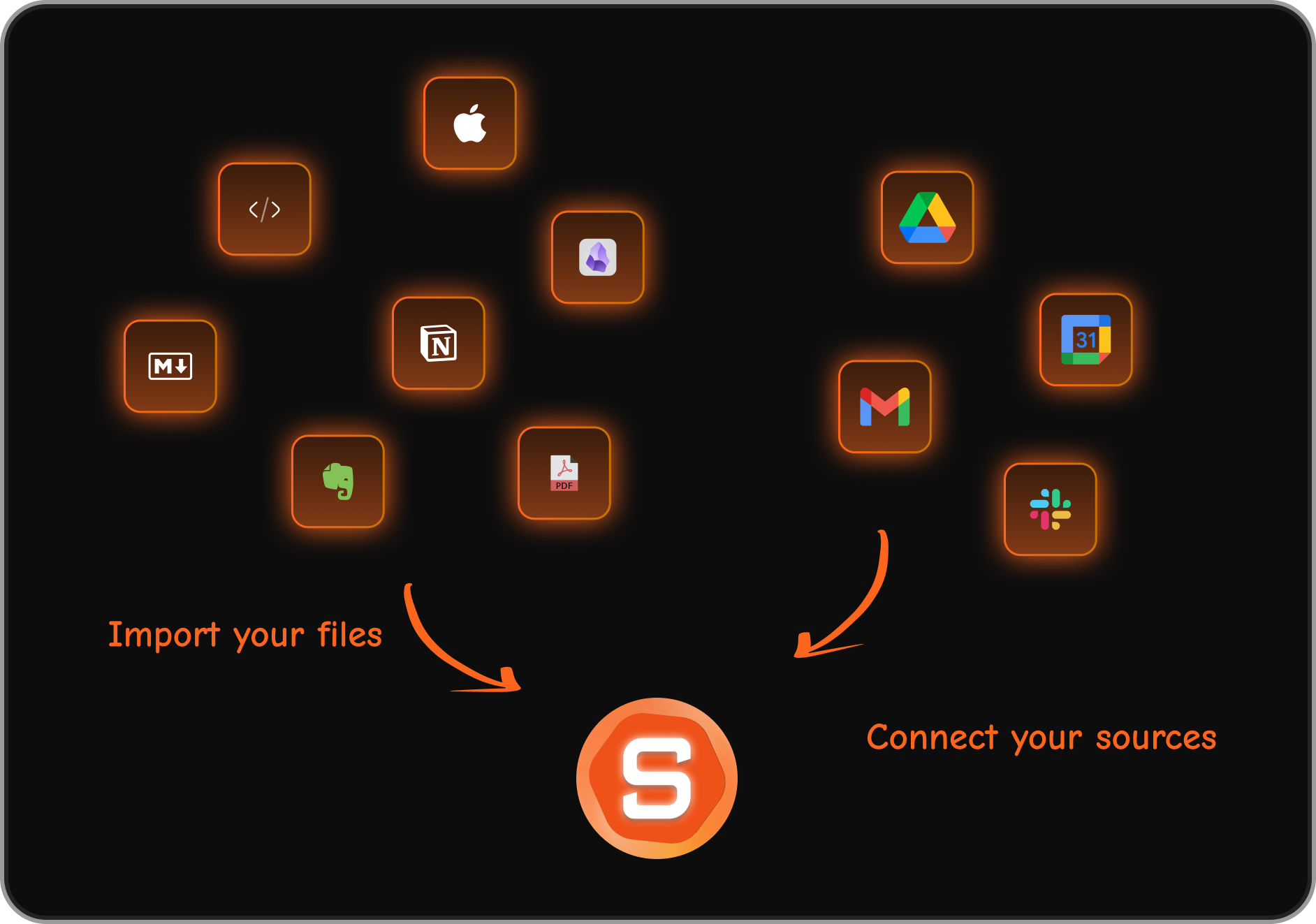
- ChatGPT – Great for brainstorming, writing, and research.
- Gemini – Integrates deeply with Google Workspace (Docs, Sheets, Gmail).
- Claude – Ideal for long document summaries and collaborative writing.
- Microsoft Copilot – Best for Outlook, Teams, and Office 365 workflows.
- Motion – Auto-schedules tasks based on deadlines and priorities.
- Notion AI – Excellent for teams who already live inside Notion.
- Reclaim – Time-blocking AI for automatic calendar optimization.
Each tool shines in a specific area—Saner.AI is the most balanced for entrepreneurs and managers who want focus and follow-through in one place.
4. Are AI assistants for business free?
Yes, many offer free tiers to start:
- Saner.AI – Free plan with task automation and smart reminders.
- ChatGPT – Free with limited access.
- Gemini – Free inside Google Workspace accounts.
- Notion AI – Requires a Notion workspace; AI features are pay-per-use.
- Reclaim – Free for up to a few automated scheduling rules.
Paid plans unlock more integrations, automation, and enterprise features.
5. How do I start using an AI assistant for my business?
Start small. You don’t need to automate everything on day one.
Try this flow:
- Ask it to summarize your daily emails or Slack messages.
- Use it to create and prioritize tasks.
- Sync your calendar to schedule work sessions automatically.
Once comfortable, integrate more tools - CRM, project boards, and document storage - to make your AI truly collaborative.
6. Which AI assistant is best for entrepreneurs and small business owners?
Saner.AI stands out for solo founders and lean teams.
It helps you:
- Turn messy thoughts into organized tasks
- Manage notes, tasks, and emails in one chat
- See a daily plan with top priorities and overdue items
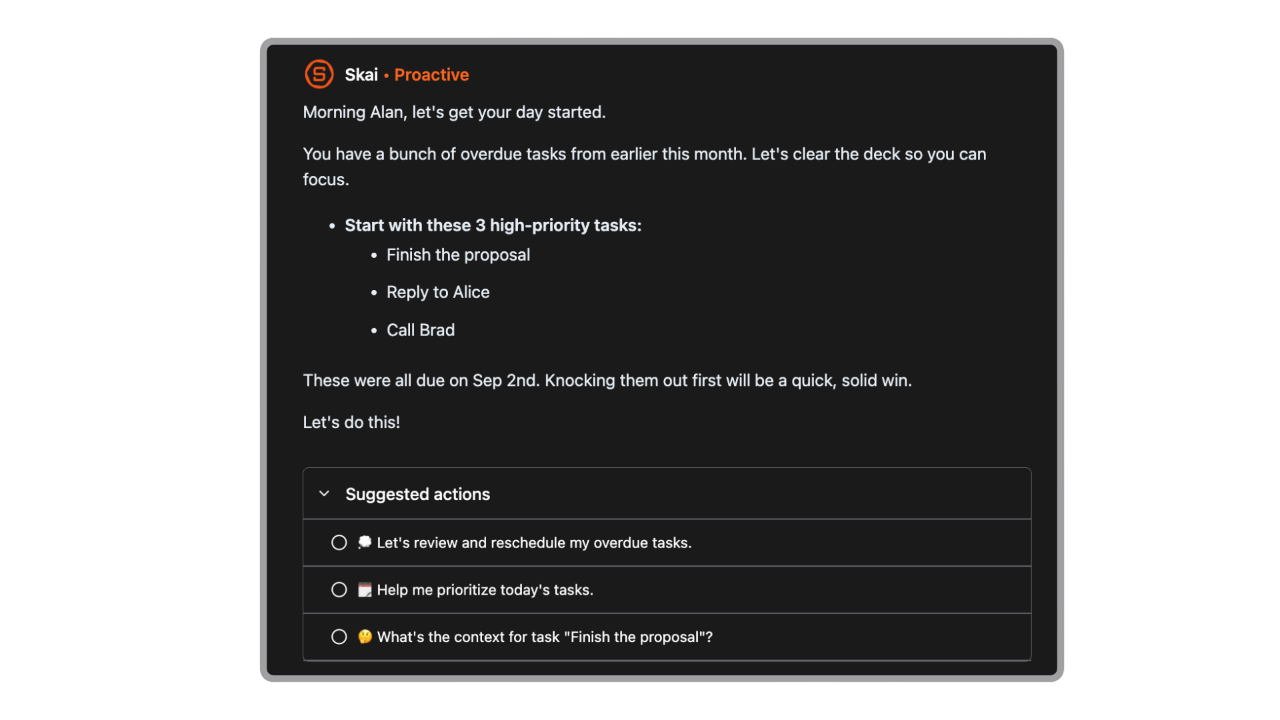
It’s like having a part-time Chief of Staff that costs less than your morning coffee.
7. Which AI assistant is best for enterprise teams?
- If your company already uses Microsoft 365, Copilot integrates seamlessly into Outlook, Word, and Teams.
- For Google Workspace users, Gemini provides similar automation in Gmail, Docs, and Sheets.
- Meanwhile, Motion and Reclaim shine for team scheduling and project coordination.
8. Do AI assistants actually improve productivity?
Yes. By handling repetitive admin work, AI assistants free up time for creative and strategic thinking.
Example:
- Saner.AI surfaces your next best action automatically.
- Copilot saves hours of manual reporting in Excel or PowerPoint.
9. Can AI assistants understand my business context?
Some can. Saner.AI, Claude, and ChatGPT (with memory) learn from your notes, emails, and projects - so they respond in context.
Instead of starting from scratch every time, they remember your goals, tone, and recurring tasks.
That’s what makes them more like assistants than just tools.
10. Can AI assistants help with meeting preparation?
Absolutely.
Tools like Saner.AI, Claude, and Notion AI can pull relevant notes and past meeting summaries instantly.
You can ask things like:
“What did we decide in last week’s marketing sync?”
“Show me follow-ups from my last client call.”
No scrolling or searching—just answers.
11. What’s the best AI assistant for managers?
Managers benefit most from Saner.AI, Reclaim, and Copilot.
They can:
- Track action items from meetings
- Get daily summaries of pending approvals
- Schedule 1:1s and reminders automatically
- Keep notes, tasks, and project updates in sync
Saner.AI goes a step further by linking notes to tasks and follow-ups automatically - no manual tagging required.
12. What’s the difference between AI assistants and traditional productivity tools?
Think of it like this:
- Traditional tools = You manage them (lists, folders, spreadsheets).
- AI assistants = They manage for you (tasks, notes, scheduling).
With Saner.AI, for example, you can:
- Dump ideas in plain language
- Let it organize and tag automatically
- Get reminders exactly when you need them
Your system finally works the way your brain does.
13. Do AI assistants support voice or mobile use?
Yes.
- Saner.AI – Voice-to-task support built in

- ChatGPT – Voice chat available in the mobile app
- Gemini – Integrates with Android voice assistant
- Copilot – Voice commands through Teams and Outlook
Perfect for on-the-go professionals who prefer talking over typing.
14. How do I choose the right AI assistant for my business?
Ask yourself:
- Do I need it for writing, planning, or coordination?
- Does it integrate with my existing tools (Gmail, Slack, etc.)?
- Do I prefer simplicity or deep customization?
Here’s a quick guide:
- Saner.AI → best for founders, managers, ADHD professionals
- ChatGPT → best for idea generation and communication
- Gemini / Copilot → best for large orgs using Google or Microsoft suites
- Motion / Reclaim → best for scheduling optimization
- Notion AI → best for documentation and internal knowledge
15. What’s the future of AI assistants for business?
Expect AI assistants to become proactive, not reactive.
Soon, your assistant won’t just respond - it’ll anticipate what you need next.
For instance:
- Flagging uncompleted client follow-ups
- Suggesting next steps after meetings
- Drafting progress reports automatically
Tools like Saner.AI are already moving in that direction - bridging the gap between AI chat and true autonomous productivity.
Never miss your deadlines again with your AI Assistant
16. What is the best AI assistant for project management businesses?
Best options for project-focused teams:
- Saner.AI – Centralizes notes, tasks, and meeting summaries so nothing falls through the cracks.
- Motion – Auto-schedules tasks based on deadlines and priority levels.
- Reclaim – Dynamically blocks focus time across calendars.
- Notion AI – Great for visualizing projects, documenting workflows, and managing teams in one place.
👉 Ideal setup: Saner.AI for insights + Motion for scheduling + Notion for documentation.
17. What is the best AI assistant for research and data teams?
For analysts, scientists, and academic researchers:
- Claude – Summarizes long research papers and generates executive insights.
- ChatGPT – Assists with hypothesis framing, report writing, and data interpretation.
- Saner.AI – Links research notes, findings, and insights into one searchable memory.
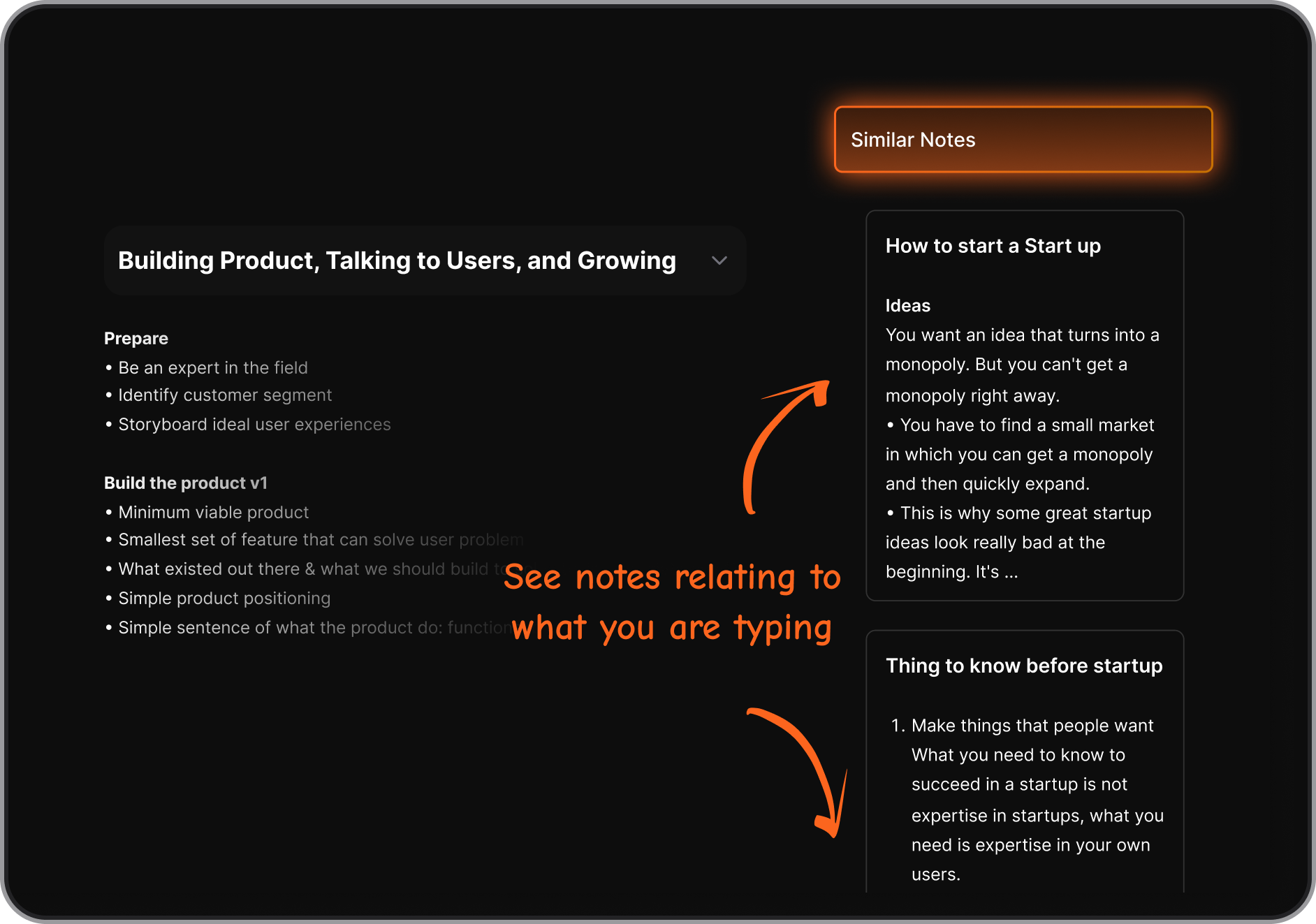
- Gemini – Works well for quick data analysis and visualization in Google Sheets.
Together, they streamline the “read → analyze → summarize → share” process.
18. What is the best AI assistant for hospitality or service businesses?
For hotels, restaurants, and event companies:
- Saner.AI – Tracks guest requests, internal updates, and to-dos in one chat interface.
- Gemini – Helps manage booking emails and quick responses via Gmail.
- Reclaim – Automates staff schedules and shift reminders.
- ChatGPT – Writes personalized replies and promotional messages for guests.
Boosts response time, consistency, and overall guest experience.
19. What is the best AI assistant for construction or real estate development?
For contractors, builders, and project developers:
- Saner.AI – Stores on-site notes, inspection checklists, and contractor updates in one workspace.
- Motion – Auto-plans site visits and project timelines based on urgency.
- Copilot – Generates progress summaries and report templates directly in Word or Excel.
- Reclaim – Optimizes time between meetings, travel, and reporting.
Helps teams stay coordinated across job sites and office workflows.
20. What is the best AI assistant for solopreneurs and side hustlers?
For people running everything solo:
- Saner.AI – Turns brain dumps into organized tasks and reminders automatically. So you save time set up admin stuff
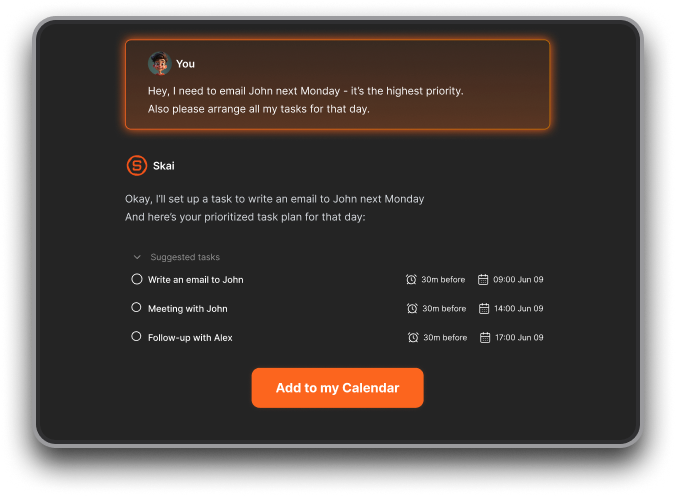
- ChatGPT – Assists with writing, brainstorming, and client communication.
- Reclaim – Protects focus time by auto-scheduling your workload.
- Gemini – Keeps track of documents, spreadsheets, and email threads in Google Workspace.
Saves mental energy so you can focus on growth instead of logistics.
21. What is the best AI assistant for content creators and influencers?
For creators juggling scripts, edits, and brand deals:
- Saner.AI – Organizes ideas, collaborations, and deadlines all in one chat.
- ChatGPT – Generates captions, scripts, or story outlines fast.
- Notion AI – Keeps brand briefs, posts, and sponsorship details in one place.
- Motion – Blocks time for filming, editing, and posting automatically.
Reduces creative clutter and helps keep consistency across platforms.
22. What is the best AI assistant for event planners or coordinators?
For those managing multiple clients or venues:
- Saner.AI – Tracks every client conversation, vendor quote, and follow-up in one workspace.
- Reclaim – Auto-schedules tasks and reminders for logistics.
- Gemini – Manages calendar invites and venue details in Gmail and Sheets.
- ChatGPT – Drafts proposals, thank-you emails, or event agendas.
Makes large events manageable without needing multiple spreadsheets.
23. What is the best AI assistant for media and PR businesses?
For agencies dealing with clients, deadlines, and coverage:
- Saner.AI – Keeps all client notes, pitches, and follow-ups easily searchable.
- ChatGPT – Drafts press releases, media pitches, and responses quickly.
- Gemini – Tracks communication and schedules through Google tools.
- Notion AI – Stores campaign calendars and media contacts.
Reduces the back-and-forth and improves coordination during press cycles.
24. What is the best AI assistant for manufacturing and supply chain businesses?
For logistics, procurement, and operations teams:
- Saner.AI – Organizes supplier notes, shipment updates, and SOPs in one hub.
- Gemini – Monitors inventory through Sheets and automates email updates.
- Copilot – Analyzes Excel data for supply trends and reports.
- Reclaim – Blocks review sessions for operations and logistics.
Enhances efficiency by unifying notes, reports, and schedules.
25. What is the best AI assistant for sales teams or business development?
For teams focused on outreach and deals:
- Saner.AI – Tracks client notes, follow-ups, and pipeline progress in chat form.
- ChatGPT – Helps write outreach emails, LinkedIn messages, or proposals.
- Copilot – Extracts CRM insights from Excel or Dynamics 365.
- Reclaim – Plans outreach blocks and follow-up calls automatically.
Ensures no lead is forgotten and every contact feels personal.
26. What is the best AI assistant for finance and investment businesses?
For financial advisors, VCs, and analysts:
- Saner.AI – Keeps meeting notes, deal memos, and reminders synced in one workspace.
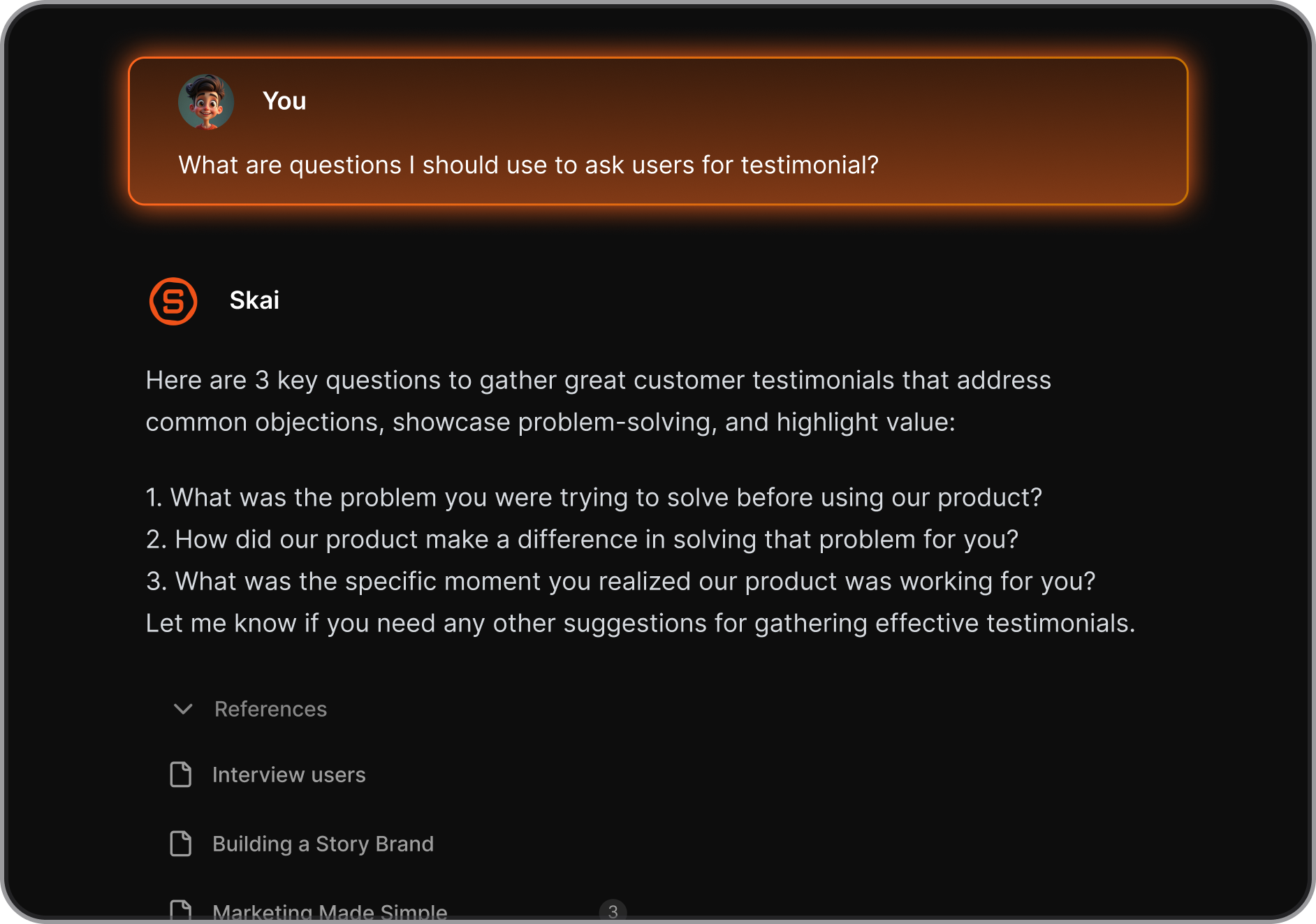
- Copilot – Analyzes spreadsheets and financial projections in real time.
- Claude – Summarizes long due-diligence documents and research.
- Gemini – Automates investor update emails and portfolio data tracking.
Reduces time spent organizing numbers, increases clarity in decisions.
27. What is the best AI assistant for hospitality and tourism startups?
For boutique hotels, travel agents, or tour operators:
- Saner.AI – Manages guest preferences, itineraries, and feedback.
- Gemini – Tracks bookings and email confirmations automatically.
- ChatGPT – Creates tour descriptions or travel recommendations.
- Reclaim – Handles staff schedules and tour timelines.
Simplifies daily coordination between operations, marketing, and customers.
28. What is the best AI assistant for IT support businesses?
For tech teams dealing with tickets and system alerts:
- Saner.AI – Keeps notes on client systems, tasks, and updates in one memory.
- ChatGPT – Explains technical fixes and writes client summaries.
- Copilot – Automates data reporting and documentation in Excel or Word.
- Reclaim – Organizes on-call schedules and maintenance slots.
Ensures no ticket or update gets lost in chaos.
29. What is the best AI assistant for media production companies?
For video, podcast, or film studios:
- Saner.AI – Centralizes scripts, shoot notes, and edit tasks.
- Motion – Auto-schedules shoots and post-production work.
- Claude – Summarizes interviews or transcripts.
- Notion AI – Manages content calendars and storyboards.
Creates smoother production pipelines and fewer missed details.
30. What is the best AI assistant for research-heavy startups or think tanks?
For innovation-driven organizations:
- Saner.AI – Links research findings, meeting notes, and project tasks.
- Claude – Reads and summarizes long studies instantly.
- ChatGPT – Helps generate hypotheses or reports.
- Gemini – Organizes data and sources in Sheets.
Supports deep thinking without losing track of information.
Stay on top of your work and life
